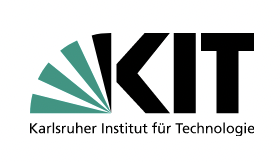Statement: Monika Landgraf Staff and Strategy – Overall Communication, Karlsruhe Institute of Technology
On Monday, 20 March 2023, the German Ethics Council published its statement “Humans and Machines – Challenges posed by Artificial Intelligence”. The 287-page document examines the impact of digital technologies on human self-image and social interaction. “The Ethics Council makes a strong case for the role of humans as consciously acting beings with intentions and freedom and concludes from this that there are rules for dealing with AI,” explains Professor Armin Grunwald from the Karlsruhe Institute of Technology (KIT). As a member of the Ethics Council, Grunwald was part of the multidisciplinary working group “Man/Machine”, which was in charge of drafting the statement. In particular, he contributed his expertise on technological change, technology assessment and digital transformation.
A common thread in the Ethics Council’s statement is the question of what the consequences are when activities are delegated to machines – especially decisions that were previously reserved for humans. This threatens the value, indeed the very possibility, of human “authorship”. “We insist that humans continue to have the last word,” emphasises Grunwald, who holds a professorship in the philosophy of technology at KIT and heads the Institute for Technology Assessment and Systems Analysis (ITAS) there. “Our particular concern is the so-called ‘automation bias’, i.e. the tendency for people to believe the results of automated decision support more than human considerations. In this way, there could be a creeping loss of human autonomy and freedom.”
Initiated by the German Bundestag with the participation of its former president Wolfgang Schäuble, the Council has developed an orientation for society and politics in more than two years and a multitude of consultations that goes far beyond many existing ethical guidelines regarding AI: “Instead of just looking at which abstract values and norms AI applications should follow, the Ethics Council places a clearly formulated image of humanity at the beginning of its considerations. According to this, AI remains a means to ends set by humans, but does not become an end in itself,” says Grunwald, who also heads the Office of Technology Assessment at the German Bundestag (TAB) operated by ITAS.
Thus, AI support for decisions that were previously made by humans based on their expertise, and even the complete delegation of decisions to AI systems (automated decision-making), can (and should) ultimately serve human autonomy, says Grunwald. “Admittedly, it must be ensured that there is neither discrimination, for example in the security or social sectors, nor that the human dimension of the individual case is lost. Machines must not decide on human fates according to the rules programmed into them by their manufacturers without expert human control.”
At the same time, the technology researcher from Karlsruhe pleads for differentiated and case-related assessments when dealing with artificial intelligence: “Instead of praising or criticising AI across the board, instead of cultivating utopian expectations or fearing the demise of humans, ethical care is just as important for each individual AI application as taking into account the specific circumstances. In vital application areas such as medicine, education, administration as well as public communication and opinion formation,” says Grunwald, “we see manifold potentials to put the actions and decisions of humans on a better basis through AI systems, for example through targeted data evaluation and decision preparation.”





